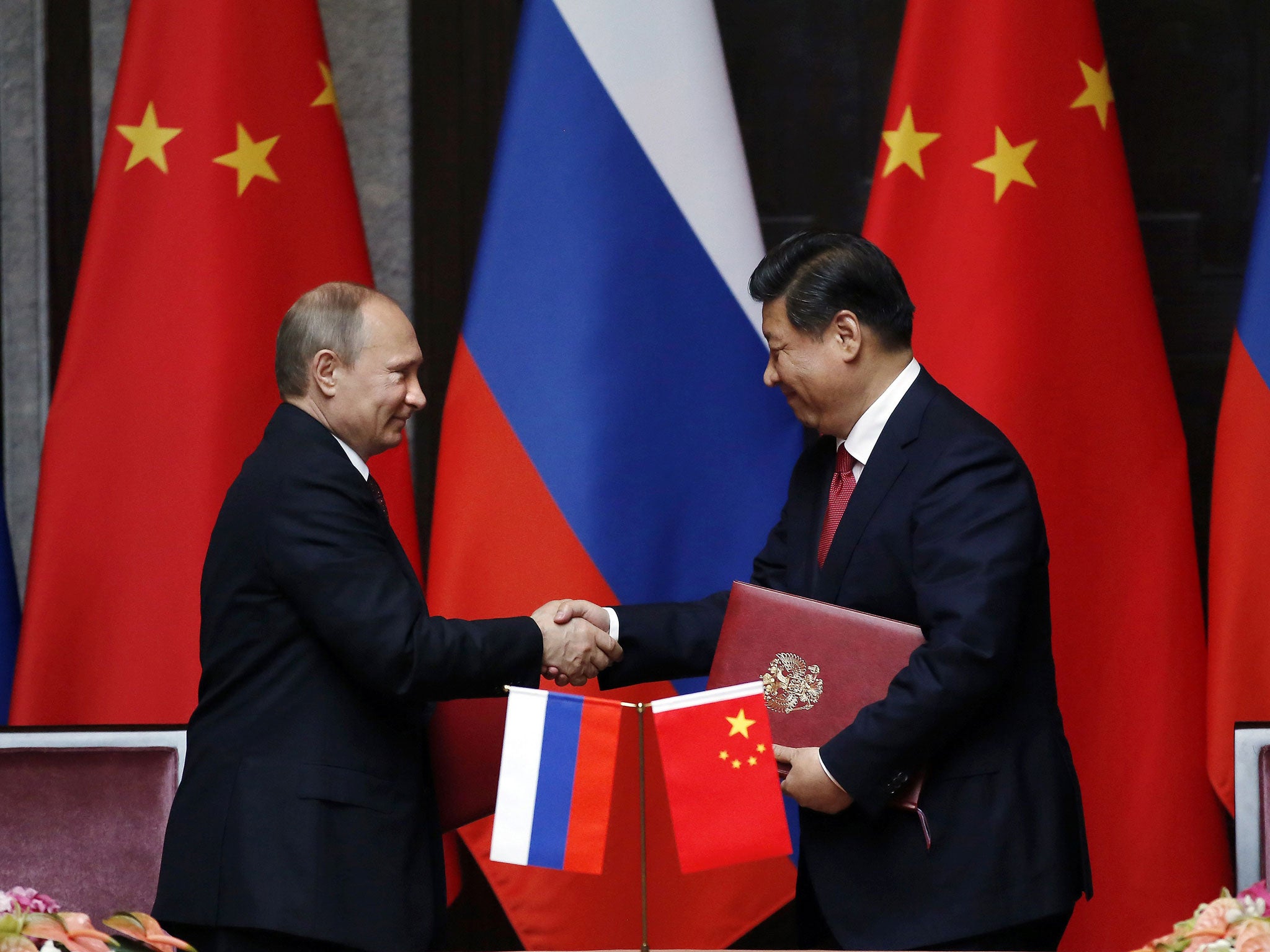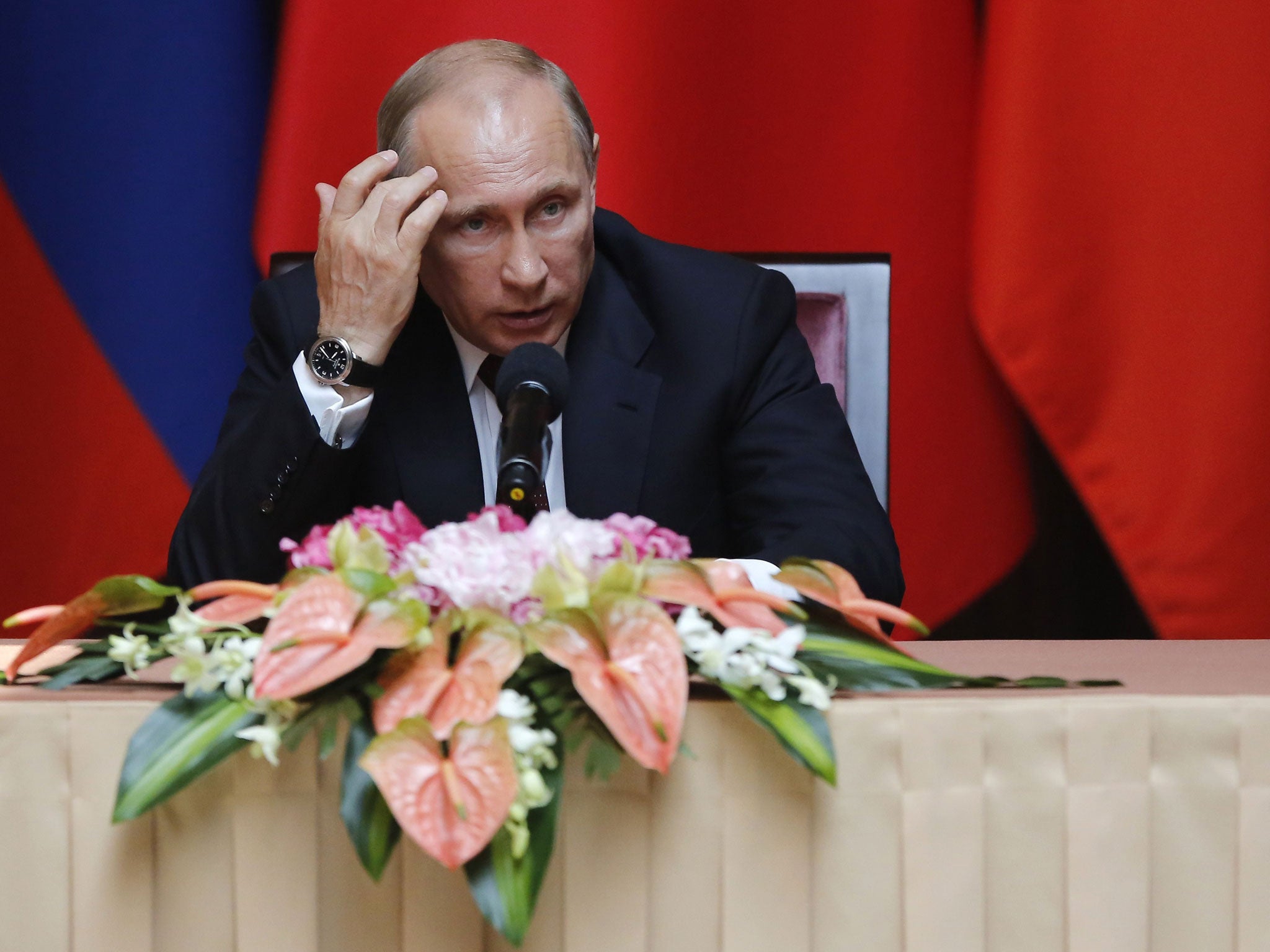Ukraine crisis: Vladimir Putin closes in on $400bn gas deal with ‘reliable friend’ China and announces pull-back of Russian troops
Russia ramps up trade to the east in a bid to shield itself from impact of EU and US sanctions

Your support helps us to tell the story
From reproductive rights to climate change to Big Tech, The Independent is on the ground when the story is developing. Whether it's investigating the financials of Elon Musk's pro-Trump PAC or producing our latest documentary, 'The A Word', which shines a light on the American women fighting for reproductive rights, we know how important it is to parse out the facts from the messaging.
At such a critical moment in US history, we need reporters on the ground. Your donation allows us to keep sending journalists to speak to both sides of the story.
The Independent is trusted by Americans across the entire political spectrum. And unlike many other quality news outlets, we choose not to lock Americans out of our reporting and analysis with paywalls. We believe quality journalism should be available to everyone, paid for by those who can afford it.
Your support makes all the difference.My enemy’s enemy is my friend. That old saw of international relations helped explain the warmth of the welcome for Vladimir Putin as the Russian President began a visit to China – at the very moment when both countries’ relations with the globe’s biggest power, the US, reached new lows.
In the nuanced lexicon of diplomacy, “enemy” is perhaps too strong a word. “Competitor” or “rival” are more acceptable terms (even “partner” when things are going smoothly). But of the growing amity between Moscow and Beijing, there is no doubt – or of the country they have in mind when they couch their rapprochement as part of a process to create a “multipolar world”.
China is “our reliable friend”, Mr Putin said on the eve of his meeting with President Xi Jinping. Ties between the two countries were stronger than ever, he said, suggesting that a $400bn (£235bn) energy export deal to send Russian gas to China, through a new 1,500-mile pipeline costing an estimated $30bn could be finalised during his stay.
Both countries’ bilateral relations with Washington are moving in the opposite direction. The Sino-Russian summit came a day after the Obama administration announced unprecedented charges against Chinese military officials for leading a massive cyber-espionage operation to steal trade secrets from major US companies – the first such criminal indictments here against agents of a foreign government.
The move has added to long-standing tensions between the US and China over the latter’s allegedly mercantilist policies, and newer ones over Beijing’s expansionism in South-east Asia amid territorial disputes with Japan and the Philippines, both close US allies, as well as Vietnam. China’s thinly concealed goal is to secure control of offshore energy resources in the region and, in the longer term, replace an effective US protectorate over the region with one of its own.
In Washington, the indictment of the five officials has been widely hailed as a much-needed and overdue step to show the US was serious about clamping down on hacking and electronic spying.
China responded with a predictable show of outrage – denying any such activities, summoning the US ambassador in Beijing for a scolding and accusing Washington of “hypocrisy and double standards”, given the global eavesdropping of the National Security Agency disclosed by its former employee Edward Snowden.
After the Ukraine crisis, Russia’s relations with the US and the West are, if anything, in even worse shape. Despite China’s traditional insistence on non-interference and the sanctity of existing international borders, Beijing has been notably reticent in criticising Mr Putin’s annexation of Crimea.

The Russian leader moved further to allay such worries, announcing a pull-back of Russian troops close to the border with Ukraine. China in return backed Moscow’s stance in the crisis, as a statement issued after the talks stressed the need for “peaceful, political ways to resolve the problem” and spoke of the crisis as a “domestic” issue.
The mooted gas deal with China would put economic flesh on these diplomatic bones – proof that Russia has other markets beyond an increasingly wary and hostile Europe for the energy and raw material exports on which its economy overwhelmingly depends. Hence Mr Putin’s “pivot to Asia”, which seems more productive than the one attempted by his opposite number in Washington.
Join our commenting forum
Join thought-provoking conversations, follow other Independent readers and see their replies
Comments